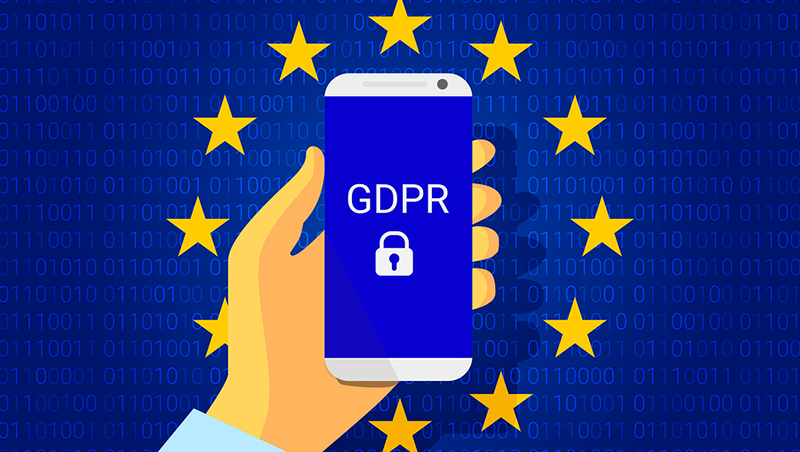Social network users play fast and loose with data privacy
Over-sharing puts users at risk of identity theft and fraud


Lack of basic awareness among social media users is putting their data at risk, according to a survey from analyst house IDC and Kapersky Lab.
Nearly one-third of respondents shared posts, check-ins and other personal information publicly, the security firm found. Worryingly, nine per cent did not even realise they were sharing this information widely, believing only their friends could see it.
A quarter of those who took the survey also said they would have no hesitation clicking on a link sent by a friend without asking what it is. This puts them at particular risk if their friend's account has been compromised - something they had not even considered as a possibility.
A smaller, but still significant proportion (12 per cent) admitted to adding anyone to their list of friends, even if they were complete strangers, while 31 per cent said they would accept friend requests from people they did not know if they were "a friend of a friend".
This over-sharing means cyber criminals could carry out fraud and identity theft with little to no effort, or malware could be downloaded to users' computers if they clicked on rogue links. It could also open these users up to unwanted contact from recruiters, advertisers, compensation brokers and others.
This could also be of concern to businesses, not only because employees could be downloading malware onto their work devices, but also because it opens users up to phishing scams.
"Social network users are playing a dangerous game by not being cyber-savvy and essentially giving strangers easy access to their personal details and private information," said principal security researcher at Kaspersky Lab, David Emm.
Get the ITPro daily newsletter
Sign up today and you will receive a free copy of our Future Focus 2025 report - the leading guidance on AI, cybersecurity and other IT challenges as per 700+ senior executives
"With social media profiles containing a raft of insight - from birthdays through to addresses and holiday plans - it wouldn't take much digging for a cybercriminal to find and exploit valuable information, or steal your identity for their own gain. This is even easier if you have unwittingly made them your friend," he said.
Kaspersky Lab recommended that users protect themselves through basic steps, such as being cautious who they befriend and trust online and, if in doubt, they should not accept a friend request. Additionally, they should not click on links they are not expecting and should ensure their privacy settings are as high as possible.

Jane McCallion is Managing Editor of ITPro and ChannelPro, specializing in data centers, enterprise IT infrastructure, and cybersecurity. Before becoming Managing Editor, she held the role of Deputy Editor and, prior to that, Features Editor, managing a pool of freelance and internal writers, while continuing to specialize in enterprise IT infrastructure, and business strategy.
Prior to joining ITPro, Jane was a freelance business journalist writing as both Jane McCallion and Jane Bordenave for titles such as European CEO, World Finance, and Business Excellence Magazine.
-
 Meta just revived plans to train AI models using European user data
Meta just revived plans to train AI models using European user dataNews Meta has confirmed plans to train AI models using European users’ public content and conversations with its Meta AI chatbot.
By Nicole Kobie
-
 AI is helping bad bots take over the internet
AI is helping bad bots take over the internetNews Automated bot traffic has surpassed human activity for the first time in a decade, according to Imperva
By Bobby Hellard
-
 What is your digital footprint?
What is your digital footprint?In-depth Your digital footprint is always growing – so we explore how you can keep it under control
By Maggie Holland
-
 Nine top GDPR tips for email marketing strategies
Nine top GDPR tips for email marketing strategiesIn-depth It's not all doom and gloom – here's how you can make GDPR work for you
By Zach Cooper
-
 Why GDPR creates a "vicious circle" for marketers
Why GDPR creates a "vicious circle" for marketersNews Customers will control the forthcoming trust economy, predicts Aprimo
By Rene Millman
-
 Facebook will allow adverts to target users based on beliefs
Facebook will allow adverts to target users based on beliefsNews The company will also give users opt-ins to use facial recognition to prevent impersonation
By Rabbil Sikdar
-
 Tim Berners-Lee: How we can win back the web
Tim Berners-Lee: How we can win back the webNews The public must reject misinformation and keep control of their own data
By Clare Hopping
-
 UK government Facebook data requests grow 71%
UK government Facebook data requests grow 71%News Only US and India ask for more user details from the social network
By Adam Shepherd
-
 Virginia shooting - don't open that link!
Virginia shooting - don't open that link!Opinion Scammers and cyber criminals love to capitalise on tragedy, and we can't help but click
By Jane McCallion
-
 Under-18s will be able to delete embarassing social posts
Under-18s will be able to delete embarassing social postsNews A campaign by iRights could see a law introduced allowing the removal of inappropriate photos and status updates
By Clare Hopping